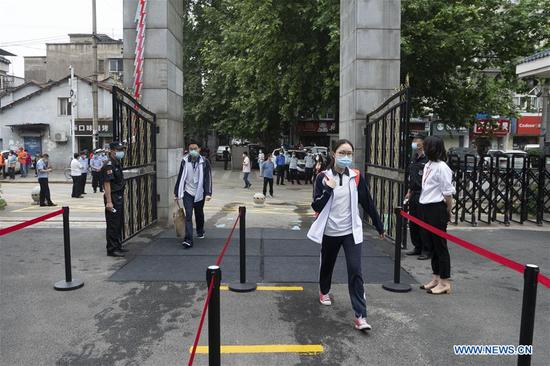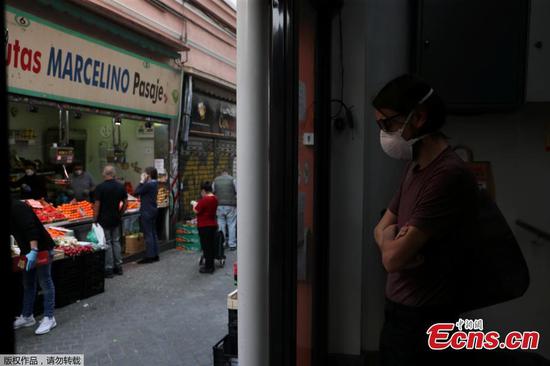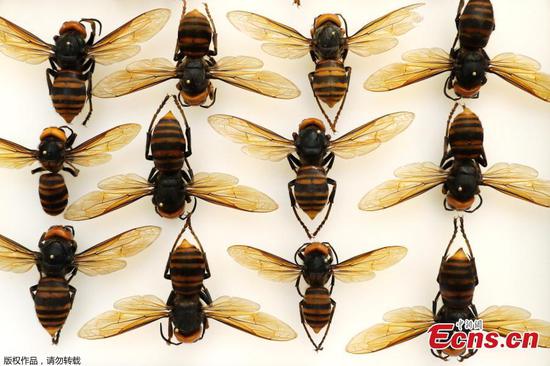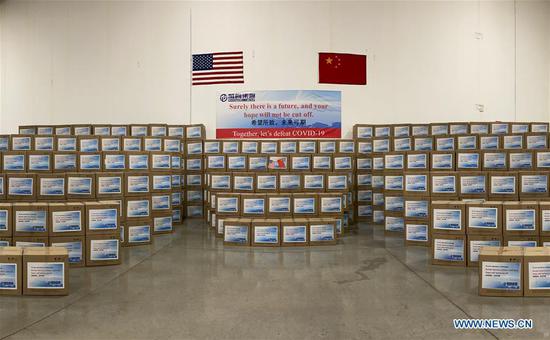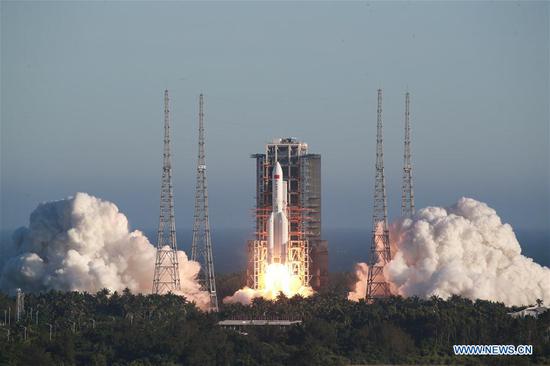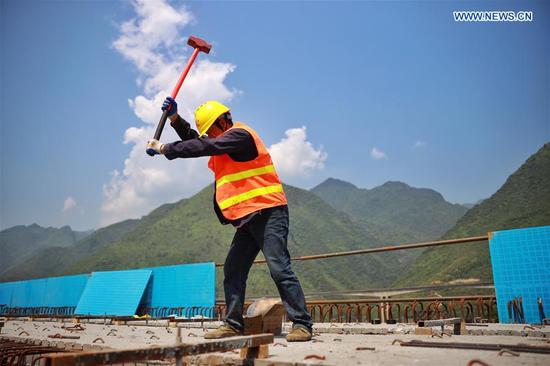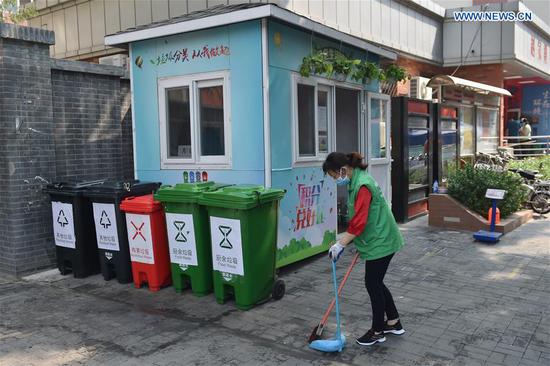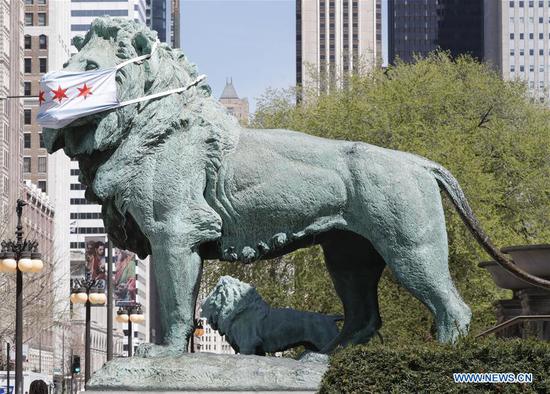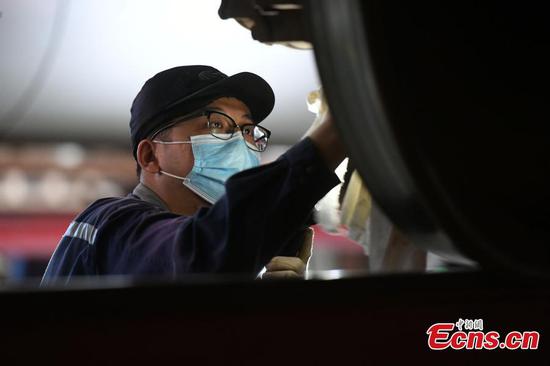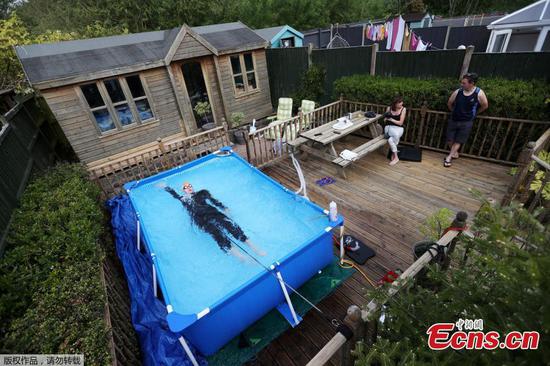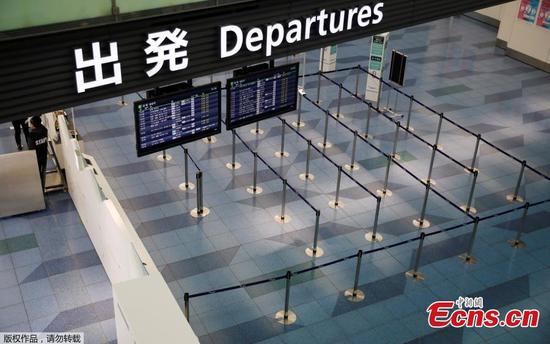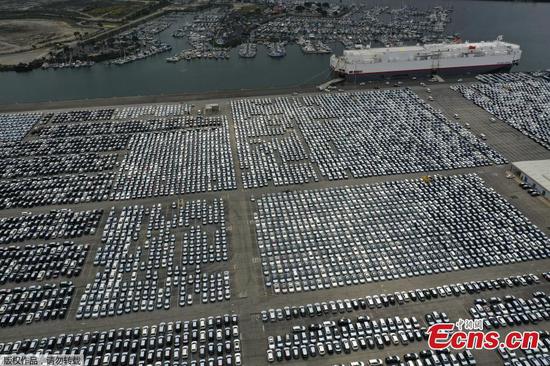Beef with truffles, roasted halibut, crispy skin salmon -- customers in China can now order fancy food from luxury hotels without leaving home and enjoy a much lower price than dining in.
Following the actions of contactless delivery services provided by hotpot stores and fast-food restaurants, luxury hotel brands including Crowne Plaza and Shangri-La have followed suit, trying to woo customers with cheaper prices and make up for the severe loss caused by the novel coronavirus epidemic.
Lin Han, a 29-year-old office lady in Lanzhou, capital of northwest China's Gansu Province, said one of her most painful daily tasks was ordering lunch for her colleagues, as most of the nearby restaurants were shut down amid the epidemic, leaving her with limited choices.
She eventually found that the neighboring five-star hotel Crowne Plaza launched delivery services on Eleme, an online food delivery platform. She decided to order 10 prix fixe menu items of curry beef, fried spring rolls, mixed vegetable salad and steamed Thai rice at the price of 58 yuan (about 8.19 U.S. dollars) each.
"Food is exquisite and delicately packed at an acceptable price, and most importantly, the standardized 'zero-touch' delivery of starred hotels is trustworthy," she said, adding that her colleagues were satisfied with her choice.
Data released by the China Hospitality Association showed that during the Chinese Lunar New Year holiday in late January, the outbreak of the novel coronavirus caused an average loss of revenue up to 67.81 percent among the 5,109 hotels in 28 provincial regions across the country, compared with the same holiday time last year.
According to Wang Qin, sales director of Crowne Plaza Hotel in Lanzhou, catering income accounted for 35 percent of the hotel's total revenue.
"When nobody wants to eat out, even in a fancy hotel, food delivery becomes their first choice," Wang said.
The hotel has selected six menus with prices ranging from 58 yuan to 1,299 yuan targeting different customer groups. They also launched a monthly package of lunch buffet menus for students and white-collars nearby, with coupons offered.
Another five-star hotel, Wanda Vista Lanzhou, starts selling "street-food" breakfast, offering meat buns, baked bread and Chinese dessert on the roadside.
The hotel also provides boxed lunch delivery services with prices as low as 29.9 yuan, receiving 80 to 200 orders every day, said Cao Liang, catering sales director of the hotel.
"We are giving a discount that we have never done," said Cao.
He said it is difficult to make food delivery service profitable in a short period of time, but it is an effective marketing method under such particular circumstances.
Ma Liwen, director of sales and marketing of Barazza Fairyland Hotel in Lanzhou, was planning on purchasing a cold-chain transport vehicle for the hotel for its high-end delivery services.
"Instead of wearing tight suits and sitting for hours for a decent meal, customers ordering online can enjoy their meal in pajamas at home with waiters in uniform and white gloves at their services," she said.
Yao Cheng, general manager of the hotel, said he was confident about the market prospective of on-the-spot services, although the price may be at least 15 percent higher than average.
"Takeout food can also be exquisite," he said, adding that the hotel will also cater family banquets for upscale customers.
Food delivery is not the only "down-to-earth" service provided by starred hotels in China. Shangri-La Hotels in the cities of Xiamen and Shenyang have taken online laundry orders, with the average cost of only 20 yuan for each piece of clothing. Hotel chefs from Beijing and Hohhot, capital of Inner Mongolia Autonomous Region, have taught viewers how to cook via livestreaming.
Zhao Zhonglu, president of the Gansu Cooking Association, said the epidemic not only changed people's lifestyles but also accelerated the transition of the catering industry.
"Luxury hotels are now diversifying their profit models to meet the demand of customers," said Zhao. Enditem










